On Sunday, August 25, 2019, Pastor Jennifer Smith-Walz preached a sermon titled “Turn up the Volume” from the sermon series “Listen! Tuning in to the Voice of God.” The scripture was from Ephesians 4:1-4.

What would you give up to dwell fully in God’s Kingdom?
God’s kingdom is what Christ was about. Christ ushered in the Kingdom of Heaven as being here but elusive. He bore it in his every action, healing, casting out evil spirits, and helping the poor. He taught about it, often in challenging ways such as in the Sermon on the Mount and in Parables.
Jesus told us that God’s Kingdom is all around us. Sometimes we find it by accident, like a treasure. Sometimes we find it after a long search, like a pearl. Sometimes we have to sift through a lot of things to find it, like for a fish. We also heard three short parables about what people did to get there:
- One sold everything they had to buy a field where there was a treasure
- One bought this extraordinary pearl so they might have it in their possession
- Another bought fish
Jesus told us the Kingdom of God can be elusive unless we have eyes to see it and ways to know this. He explained that the kingdom is like a mustard seed or like finding a loaf of bread.
In response to the Pharisees who asked him about the kingdom of God, Jesus said that it is like this pearl and it does unexpected things. It demands an extravagant response like selling all you have and giving it to the poor. What are you then willing to give up to dwell in God’s kingdom? Give away everything that you have?
There is a hunt for the kingdom of God. Something obscures it from our vision, from our understanding. We must, therefore, listen to God’s voice. God is always inviting us to have a more perfect love for each other. When we talk about discernment – seeking God’s will, direction, and guidance – we are seeking God’s kingdom. God will lead us to abundant life for all, with wholeness and restoration in his perfect love. A banquet that isn’t complete until all of God’s children share in it peaceably. We must look daily for God’s presence, which brings consolation. Feeling distant from God only brings desolation. You will find God’s kingdom by daily looking and observing where God has been.

God is asking you to not do all of that by yourself or on your own. We can hear God’s voice more clearly when we are with others than on our own and when we allow others to help us. So think of who can help you. Try to rally a group of people around you. Turn up the volume so you can hear from God when you are with other people. The point is that we are fiercely independent and want to do everything on our own. However, we need to share our burden with others and trust them to help us. I, therefore, invite you to give yourself over to others to let them also bear your burden.
Here is the link to the podcast of Pastor Jenny’s sermon
Here is the link for the complete video of the August 25 service, go to Princeton United Methodist Church Facebook page.

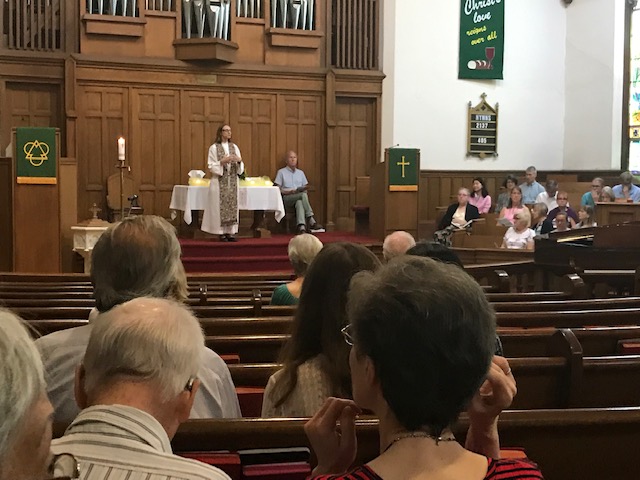

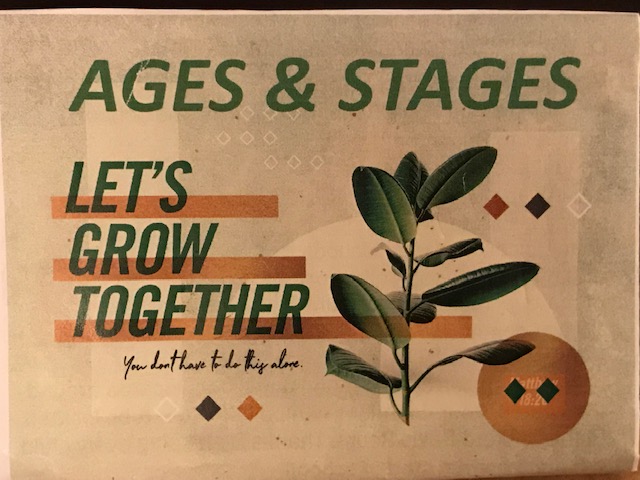
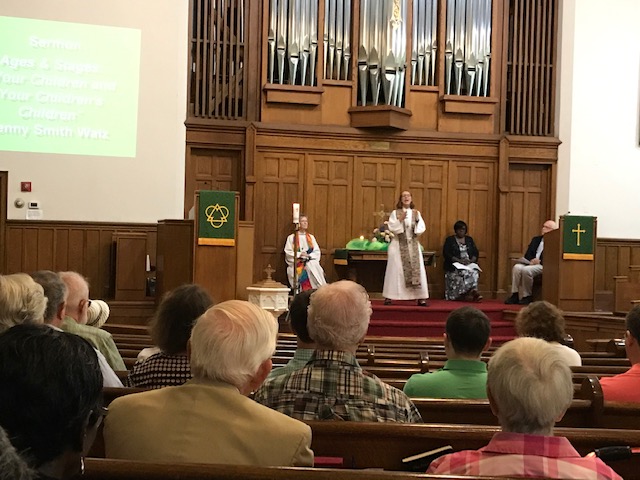
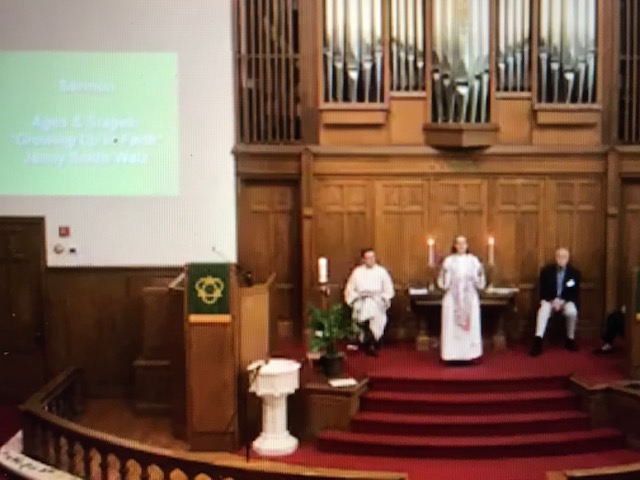

 For Freedom, Christ has set us free, so that we may enjoy the benefits of freedom. How appropriate this is on the
For Freedom, Christ has set us free, so that we may enjoy the benefits of freedom. How appropriate this is on the 
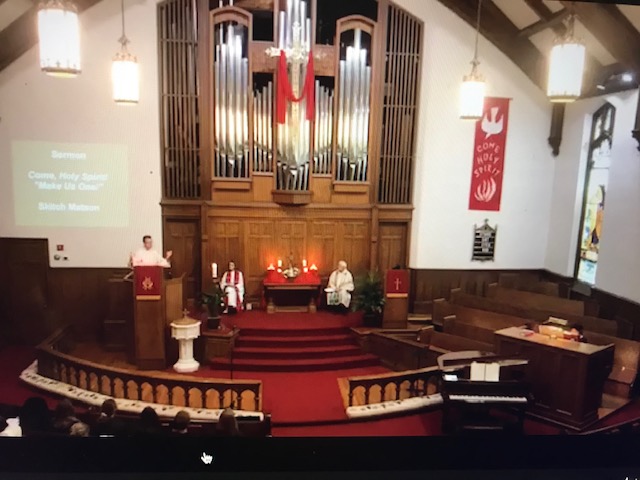

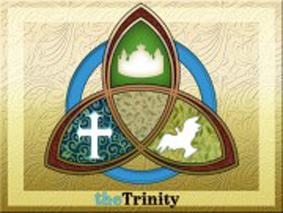
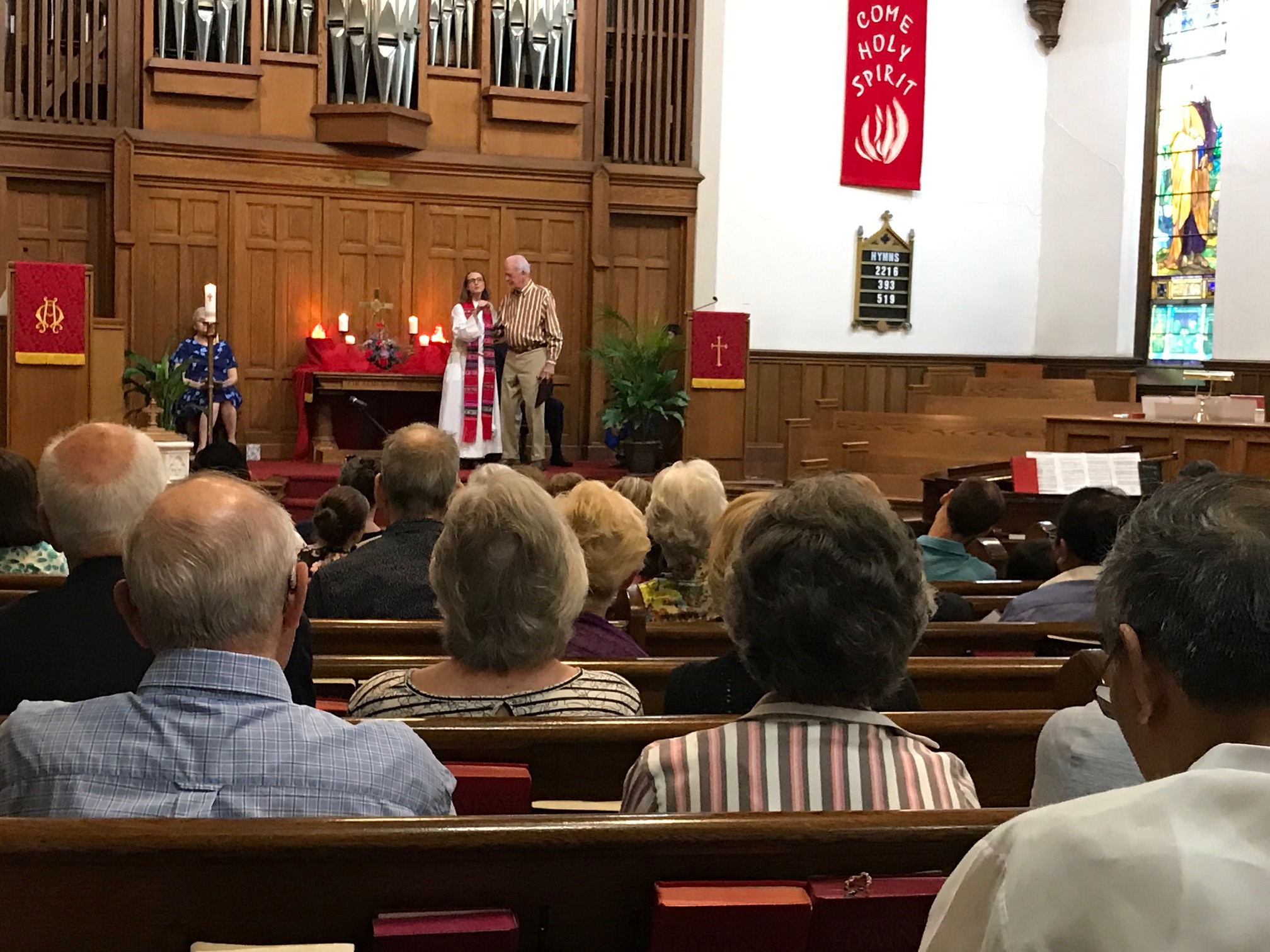
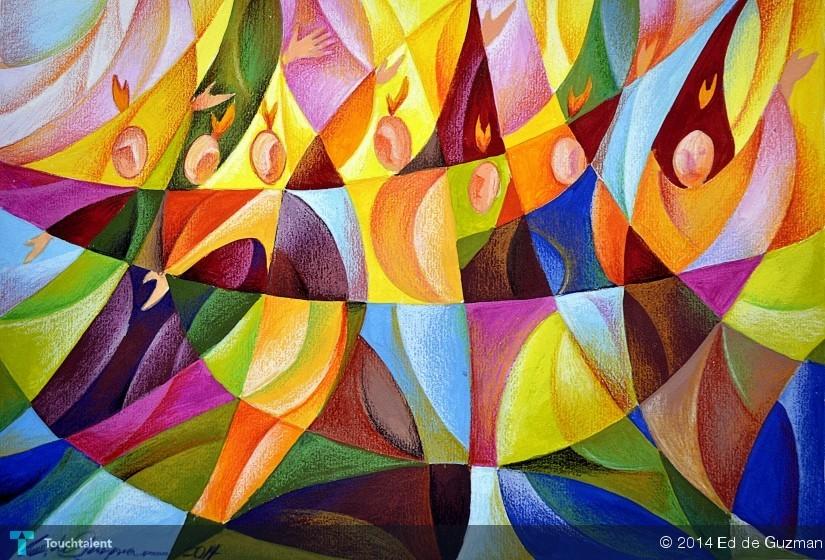
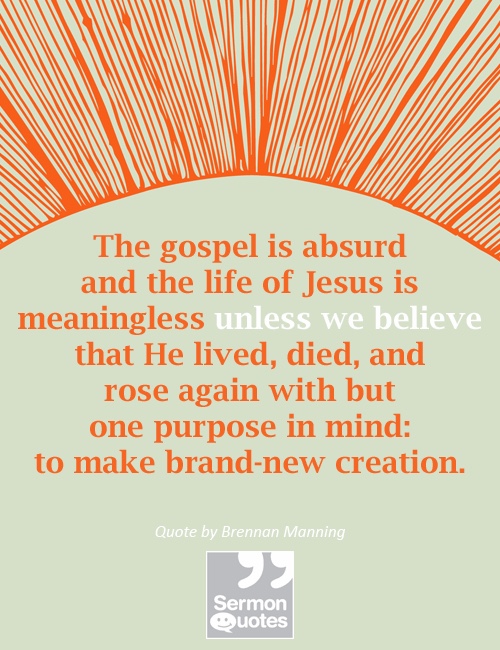 In illustrating the scripture,
In illustrating the scripture,
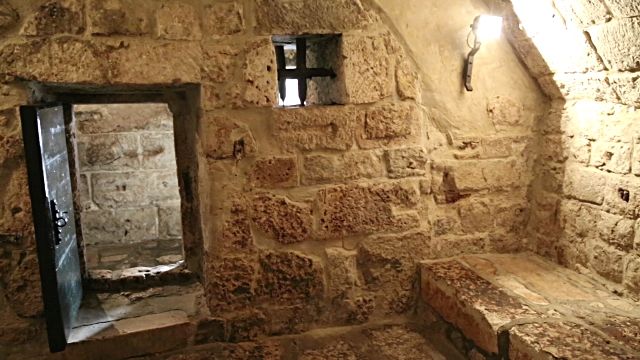
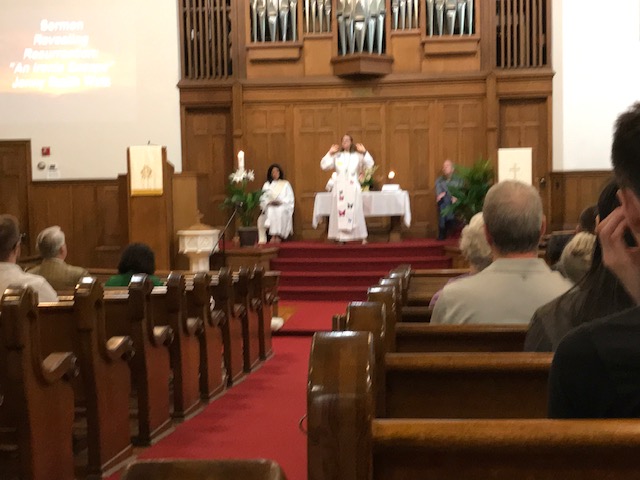
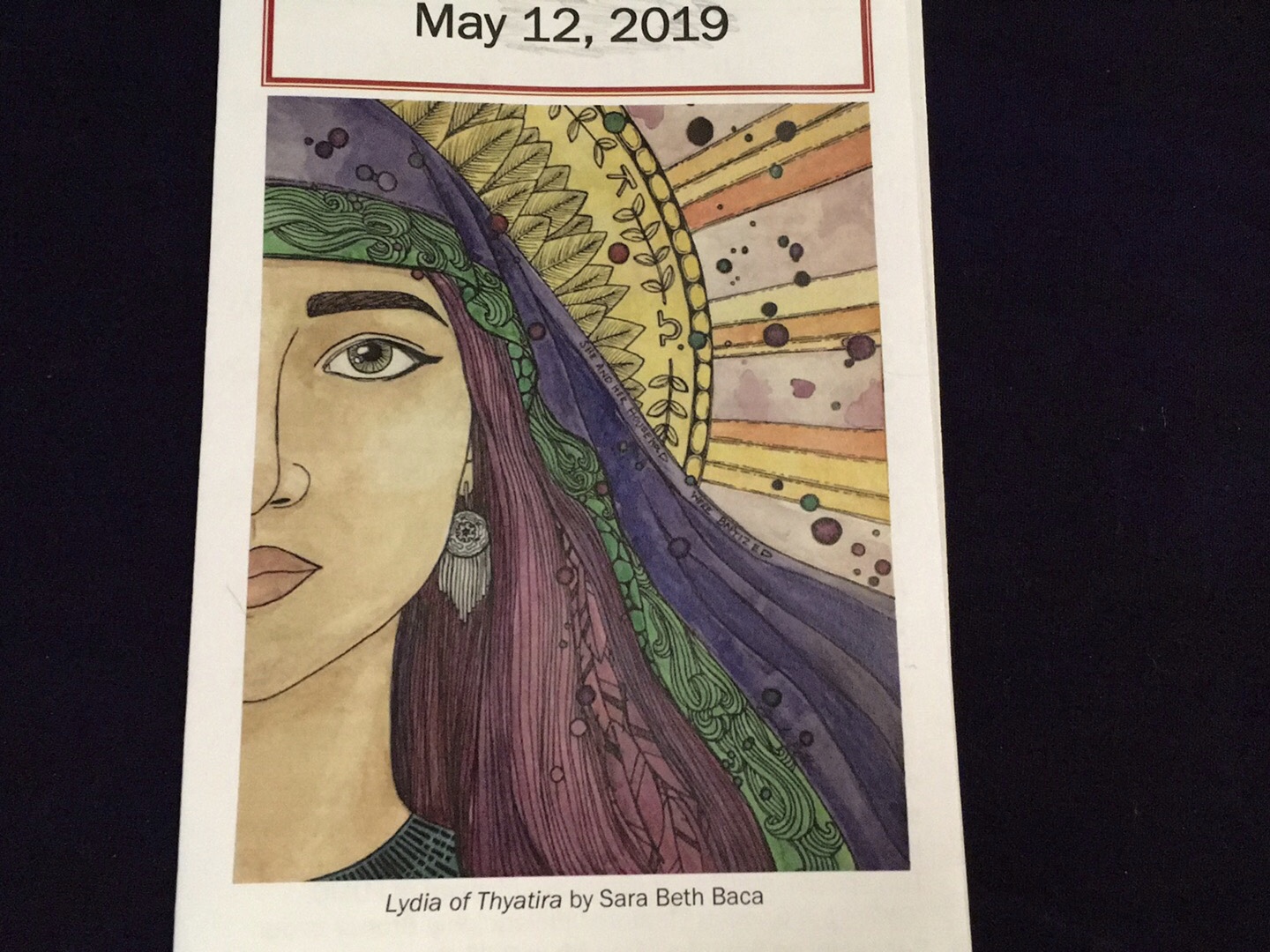 On Sunday, May 12, 2019, Pastor Jenny Smith Walz and
On Sunday, May 12, 2019, Pastor Jenny Smith Walz and